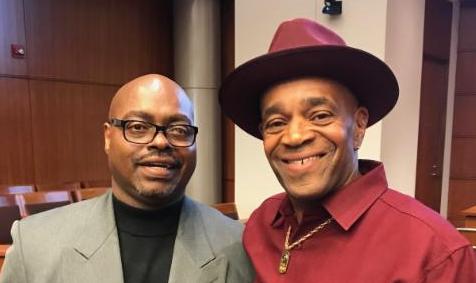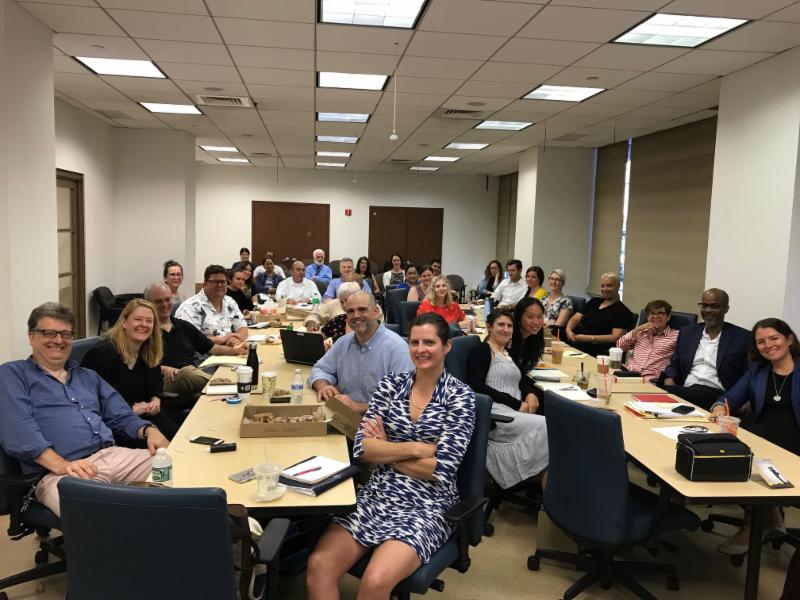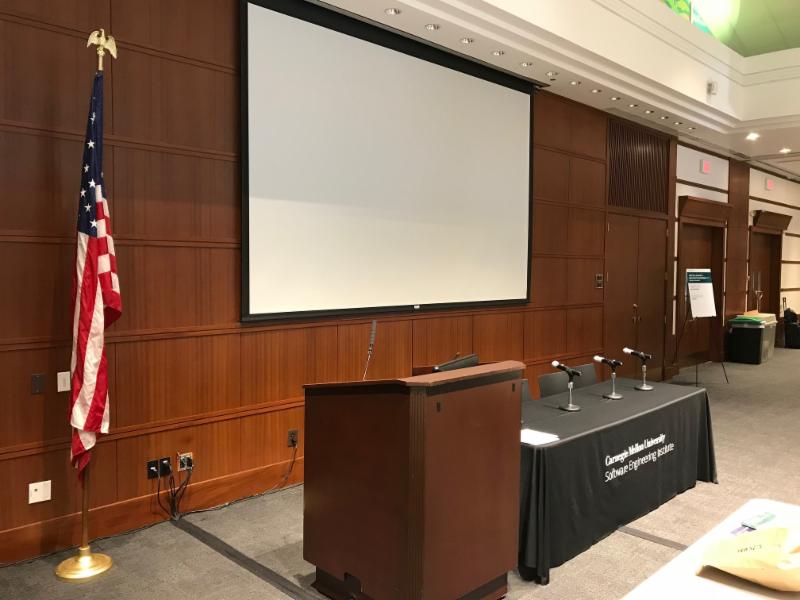|
Better justice through better science
The TrueAllele® word is spreading. Getting more information from DNA evidence fights crime and protects the innocent. Same data, better computing.
Writing from a Birmingham jail fifty-five years ago, Dr. Martin Luther King, Jr. said, "Injustice anywhere is a threat to justice everywhere."
Truth-seeking computing is accurate and unbiased. Here is some recent TrueAllele news.
|
New York Times op-ed favors
TrueAllele re-examination
of old DNA cases
On September 21, Boise State University Professor Greg Hampikian published an
opinion in the
New York Times
about
The Dangers of DNA Testing
. The Idaho Innocence Project director wrote, "Scientists in crime labs need clear feedback to change entrenched, error-prone methods, and they should be strongly encouraged to re-examine old cases where such methods were used."
Noting a recent U.S. government paper on old DNA mixture studies, Hampikian said, "The good news is that there are methods to reanalyze old DNA mixture data using computer programs that can help analysts correct errors, without any new lab testing," citing "TrueAllele by Cybergenetics." He believes "crime labs ... could and should easily go back and re-examine old DNA mixtures to correct tragic mistakes."
Hampikian told how "Working with Cybergenetics analysts and Innocence Network organizations in four states, our Boise State University laboratory has re-examined a few select cases and already persuaded courts to overturn a conviction in New Mexico, two in Indiana and two in Montana. We have also helped identify a new suspect in a 23-year-old murder."
|
|

Indiana University celebrates
On October 2, the
McKinney Law School held a half-day continuing legal education
program on wrongful convictions. About 150 people attended. Speakers included four exonerated men and women - Kristine Bunch, David Camm, Roosevelt Glenn and Darryl Pinkins - who had served lengthy prison terms for crimes they did not commit.
McKinney Law Professor Frances Watson spoke about wrongful conviction reform efforts in Indiana. Watson explained the need for compensating the exonerated, saying, "What was done by the government, in the name of the people, was wrong."
Cybergenetics Dr. Mark Perlin showed how TrueAllele computing uncovered the five unknown DNA profiles needed by the post-conviction review court to exonerate Roosevelt Glenn and Darryl Pinkins. Attorney Stacy Uliana talked about faulty forensics in David Camm's case.
|
Cold Justice helps police find DNA truth
On September 15, Oxygen's
Cold Justice aired their Season 5
episode
No Safe Return. The show investigated
the disappearance of a father who tragically vanished before moving back home with his family. They asked whether a sudden windfall of cash may have had something to do with this mystery.
Thirty-three minutes into the program, there was a surprising forensic turn. Phoning in TrueAllele
results, Cybergenetics Dr. Mark Perlin described the company's computer report on the DNA evidence.
"There may have been 4 or 5 different people who left their DNA on the money band," said Dr. Perlin. "The computer separated each person who left their DNA on the band. In every comparison, we found a strong association with the reference individual - the genetic type of suspect Andrew Nemec."
|

Cybergenetics gives DNA course
for New York City public defenders
On August 28, Cybergenetics Dr. Mark Perlin gave a full-day
pro bono continuing legal education (CLE) course in New York City's
Legal Aid Society Tribeca office.
Dr. Perlin taught the science and math underlying mixture evidence and DNA match. Cybergenetics testified for the defense in a NYC trial this June. TrueAllele analyst Jennifer Hornyak showed exclusionary DNA results that the crime lab failed to report.
Perlin also reviewed the New York v. Hillary case. Cybergenetics pro bono assistance helped preclude software that both included and excluded the defendant, depending how an analyst picked and chose their DNA data. Hillary, who was acquitted, attended Dr. Perlin's lecture; the two met for the first time.
|

Cybersecurity Symposium panel
On August 29,
Carnegie Mellon University's Software Engineering Institute held a full-day CERT
symposium on
Data Science and Security. An afternoon panel moderated by the SEI's Dr. Eliezer Kanal included speakers Judge Advocate (ret) Lisa Gumbs, Dr. Mark Perlin and Dr. Greg Shannon.
Cybergenetics Dr. Perlin spoke about forensic data privacy and security. A video of the one-hour panel is viewable on-line.
|
Cybergenetics finds match information in crime lab DNA data
In a recent Pennyslvania case, a man was pursuing a fleeing woman; both were naked. DNA was recovered from the woman's skin. The crime lab reported, "Due to the complexity of the data, no comparison can be made to the reference samples." The lab's results were uninformative.
Cybergenetics found useful DNA match information in the lab's data. The TrueAllele computer connected the skin swabs to the defendant; the match strength was 50 billion. Only 1 in 900 billion people would match that strongly. TrueAllele analyst Beatriz Pujols testified at trial. The defendant was convicted of physical assault.
|
Commonwealth v. Foley podcast shares TrueAllele results
The Pittsburgh Post-Gazette podcast To Love and To Perish recounts the 2009 Pennsylvania v. Kevin Foley homicide trial. The fourth episode talks about the DNA evidence under the fingernails of murdered Blairsville dentist Dr. John Yelenic.
Prosecutor Anthony "Krastek put three DNA expert witnesses on the stand, including Mark Perlin, who is based in Pittsburgh." Limited FBI analysis gave a match statistic of 13 thousand. But Perlin
found a 189 billion connection of "the DNA under John's fingernails" to Kevin, strengthening the case. "His [TrueAllele] computerized DNA testing had never before been certified in a trial, but is now used throughout the state" and country, and around the world.
Krastek launched the "probabilistic genotyping" computer revolution. Uninformative human DNA analysis became obsolete. Through Yelenic's fingernails, TrueAllele science reliably connected Foley's DNA to the crime.
|
|
|
|
|